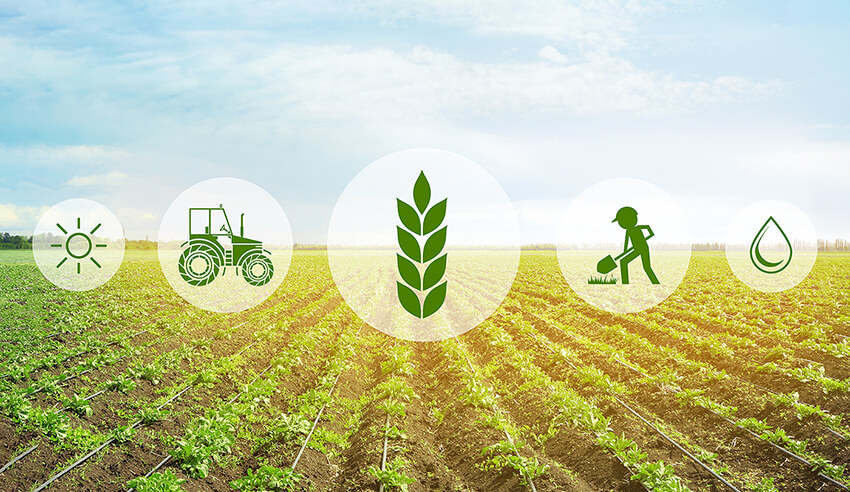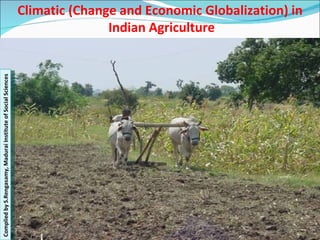Globalization refers to the increasing interconnectedness and interdependence of different countries through the exchange of goods, services, and ideas. In recent decades, globalization has had a significant impact on agriculture in India, with both positive and negative consequences.
One of the major positive impacts of globalization on agriculture in India has been the increased access to new technologies and knowledge. With the opening up of international trade, Indian farmers have been able to access a wide range of modern agricultural tools, such as improved seeds, fertilizers, and irrigation systems, which have helped to increase crop yields and efficiency. In addition, globalization has facilitated the exchange of agricultural knowledge and expertise between different countries, allowing Indian farmers to learn from the experiences and best practices of their counterparts abroad.
Another positive impact of globalization on agriculture in India has been the expansion of export markets. With the liberalization of trade policies and the opening up of new markets, Indian farmers have been able to sell their produce to a wider range of countries, increasing their income and livelihoods. This has been particularly beneficial for farmers producing high-value crops such as fruits and vegetables, as well as specialty crops like basmati rice and spices, which have a strong demand in international markets.
However, globalization has also had negative impacts on agriculture in India. One of the major concerns is the increased competition from cheaper imports, which can make it difficult for domestic farmers to compete. This has been particularly pronounced in sectors such as dairy and horticulture, where imported products are often cheaper than those produced locally. As a result, many domestic farmers have struggled to stay in business, leading to a decline in the number of small and medium-sized farms.
In addition, globalization has also led to an increase in the use of genetically modified (GM) seeds, which have raised concerns about the potential risks to human health and the environment. While GM seeds can offer benefits such as increased resistance to pests and diseases, there are also concerns about their potential impact on biodiversity and the long-term sustainability of agriculture.
Overall, the impact of globalization on agriculture in India has been complex, with both positive and negative consequences. While globalization has brought new technologies and market opportunities, it has also led to increased competition and concerns about the potential risks of GM seeds. In order to address these challenges and ensure that the benefits of globalization are shared more widely, it will be important to adopt a more balanced approach to trade and to invest in policies that support the development of sustainable and inclusive agriculture in India.









